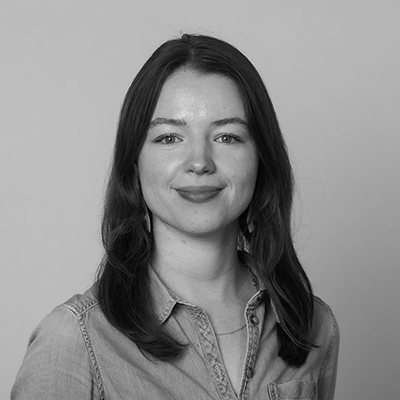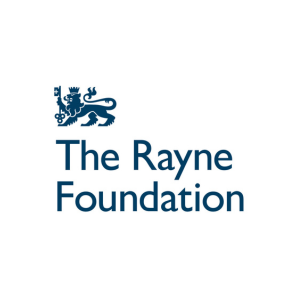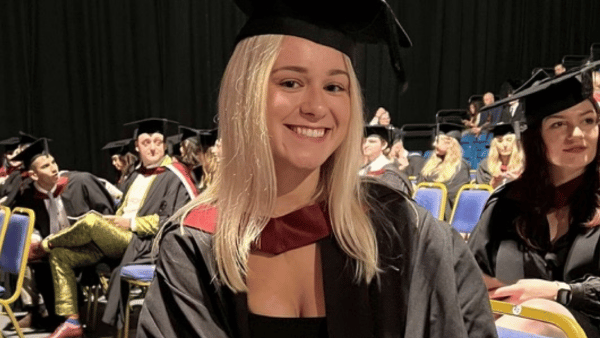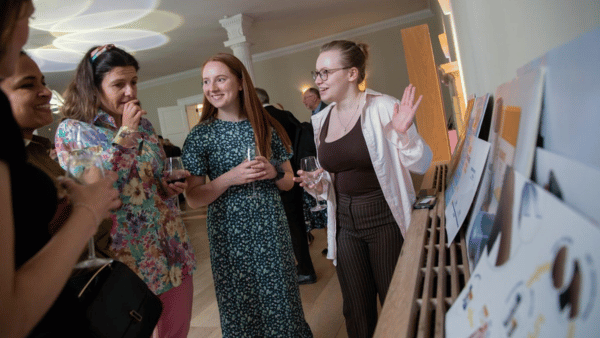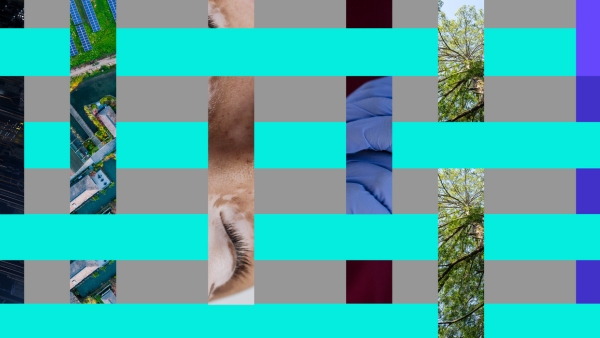The Student Design Awards brief submissions have been anonymously reviewed and we can now reveal the shortlists over our six categories for the 100th edition of the awards.
We’ll be meeting the shortlisted entrants in May at our final stage of evaluation. This will be their chance to discuss their submission with the judging panel in a series of interviews.
The 2024 Student Design Award winners will then be announced in June and we'll be celebrating their achievements at a public awards ceremony on 2 July.
We're now into the exciting final few months of the final Student Design Awards before they are incorporated into our new Design for Life Awards intervention and we can't wait to report back to you every step of the way. But for now, take a look at the amazing, inspiring projects below and decide for yourselves which you think could be successful innovations for a better future.
2023-24 RSA Student Design Awards shortlist
- ECO Evaporation System (Danyang Yu and Fei Tian from Kingston University, UK)
Integrating AI and traditional evaporative cooling to mitigate climate impacts in the underground environment of London.
- BayanAI (Douwe Kruyt, France Hémain, Jamie Mawby, Piotr Prelewicz from Royal College of Art, UK)
BayanAI provides real-time information and AI predictions of direction, risk, damage and potential impact of extreme weather events, helping Philippine communities and organisations respond to natural disasters.
- Terra Hex (Tess Taylor from Arts University Bournemouth, UK)
An AI soil sensor and app that promotes regenerative agriculture and accurate fertilisation to diminish farmers’ contribution to climate change while fostering community-led mitigation of climate challenges.
- Beta Electronics (Kristina Suwarso from University of the Arts London, UK)
Democratising and decolonising the physical design of consumer electronics.
- Mirad (Conrad Wells from Arts University Bournemouth, UK)
Ensuring workforce wellbeing with real-time health insights.
- Canal Revitalisation Network (Archie Wright, Eliot Wolfert, Isaac Lee, Jamie Hooper and Maddie Goodman from Loughborough University, UK)
The Canal Revitalisation Network is a systemic outline that aims to address several problems associated with the ever-increasing rise of environmental pollution in local towns within the UK; as well as a further decay in community spirit and a withering sense of togetherness that has led individuals to feel disassociated not only with each other but also with our green spaces.
- Miyawaki Method (Mia Woodfall from University of Tasmania, Australia)
Creating community engagement and value through a Miyawaki Forest.
- Chatham Mussel Project: From Dockyards to Dining Table (Dougal Cusack Brown from Kingston University, UK)
Chatham Mussel Project cultivates community through sustainable rivers.
- Bio-Material 4D Printing (Jiaxin Wu from Goldsmiths University, UK)
The combination of parametric design and 3D printing technology gives the biocomposite material a spontaneous response to the surrounding environment, to realise the application of biocomposite materials in building structures to achieve the adjustment ability of local space.
- Hairvolution: Regeneration of Chatham through Hair-Textile (Panisara Sapchartanan from Kingston University, UK)
Regeneration of Chatham through Hair-Textile utilises hair waste as a biomaterial to activate sustainable circular processes while creating employment and opportunities for local fashion and textile graduates and enhancing community life in Chatham, Medway.
- Freckl (Mariela Gomez Diaz from Manchester Metropolitan University, UK)
Your big sister's guide for healthier skin and increased confidence; understanding your pimples, loving your dimples, and monitoring your symptoms.
- Sunscreen saved from landfill, to save your skin (FinleyMae Stainfield from Cardiff Metropolitan University, UK)
Repurposing and redistributing slightly imperfect products, offering free sunscreen to socio-economically deprived areas within Wales.
- XPOSURE (Alisa Smith from Arts University Bournemouth, UK)
Building confidence and decreasing skin cancer rates, XPOSURE is a sun-care brand that targets young men beginning their careers in construction.
- Bioderma (Julita Napieralska from Brunel University London, UK)
A saliva test to get baseline skin vitamin and mineral levels. Personalised recommendations on how to improve and accept your skin care using an app, based on the nutritional value of what is in your skin.
- Oasen (Emily Willis and Julia Barbagallo from Loughborough University, UK.
A skincare brand designed to cater to those with sensory differences, offering sensory-safe products and an accommodating in-store experience that creates an environment to foster confidence and skin health.
- Skin deep (Oliwia Ostaszewska from University of Lincoln, UK)
A collection of ceramic pieces that highlight the challenges faced by people of colour suffering from skin conditions.
- HevCare: Providing a Helping Hand (Indianna Pritchard-Martin from University of Lincoln, UK)
A friendly device and accompanying app designed to enable seamless voice messages between carers and older adults, improving mental and emotional wellbeing and facilitating a robust support network, reducing isolation.
- Uplift (Jack Brady and Sean Kevin OCarrol from National College of Art and Design, Dublin, Ireland)
A service providing relief for carers and enabling community support.
- CAREA (Eve Dolanldson from Kingston University, UK)
Geosocial networking application that aims to connect unpaid carers with others nearby, combatting loneliness and facilitating the development of local, community-specific support networks.
- Balance (Empowering families through every step of the caregiving journey by Abhipsha Ray from Royal College of Art, UK)
A collaborative platform providing families with tools to seamlessly pass down valuable caregiving insights, fostering a culture of care and support spanning across generations.
- On your doorstep (Dominic Gallagher and Jemimah Sutton from University of the West of England, UK)
A neighbourhood campaign designed to bring together residents and help the elderly reconnect with their local community.
- Steady (Amelia Blantern from Arts University Bournemouth, UK)
Steady is a community scheme which provides public, rentable smart mobility aids for older adults to encourage safe and independent walking outside.
- Pyri (Karina Gunadi, Richard Alexandre, Richard Goodwyn and Tanghao Yu from Royal College of Art, UK)
Inspired by heat-reactive pine cones, Pyri is a low-cost and zero-maintenance early wildfire detection system made from nature-based materials.
- How We Sing in the Monsoon Sea (Apipu Srimonthol, Kritsada Chanaphaijaroensuk and Torntum Phophientong from University of the Arts London, UK)
A modular, self-sustained structure designed to strengthen the mangrove restoration campaigns against sea erosion, whilst providing an alternative fishing opportunity for the local community during the monsoon periods.
- EcoLens (Carly Laudenslager, Jolie Grazia and Oliver Watts from Champlain College, US)
EcoLens utilises AR/AI technology to help educate users and allow them to see where effective tree species could be planted to help mitigate flood damage and promote ecological rejuvenation through promoting conscious planting efforts, connecting with local resources, and engaging with their community.
- KoKoKnots (Kreeshi Shavdia from University of Bristol, UK)
KoKoKnots is a traditional wooden boat made by the community using old-time techniques and inspired by circular design which assists in preserving identity and generating income, while also being deeply rooted in the reforestation of mangroves and the introduction of halophytes, to ensure the safeguarding of water resources, food security and biodiversity.
- Bonsai buddies (Jennie Leung from University of Portsmouth, UK)
Bringing the benefits of nature-based ecotherapy and journaling to isolated and less physically able older people, to improve their health, wellbeing, and quality of life in their golden years.
- SDA Scrapbook (Ying Qi Tang from Technological University Dublin, Ireland)
SDA Scrapbook celebrates the centenary of the Student Design Awards.
- SDA Through The Centuries (Teo Hennessy from Limerick School of Art and Design, Ireland)
The journey of the SDA is told through shape, colour and form.
- Trailblazers to Future Shapers (Miriam Hurley from Technological University Dublin, Ireland
This animation immerses viewers in a journey through the evolution of the SDAs, inspiring them to explore their potential impact as future innovators in the creative fields.
- A History of Making a Mark (Sophie Pierce from Technological University Dublin, Ireland)
A charcoal animation highlighting the legacy of the RSA student design awards and the impact that it continues to have on society.
- It All Starts on Paper (Abbie Smith and Frankie Harrison from Northumbria University, UK)
Exploring the rich history of the student design awards through print and paper, where all design begins.
In partnership
With support from
Read blogs and Comment articles about the Student Design Awards
-
Sophie Hague: me and my education
Blog
Sophie Hague
Sophie Hague, a 2022 Student Design Award winner, explains how design helped to identify the learning techniques that worked for her.
-
The Student Design Awards' most ambitious year yet
Blog
Anna Markland
Learn about our legacy of active inclusion and our commitment to making 2023-24 the boldest and most far-reaching Pupil and Student Design Awards cycles yet.
-
Century of innovation
Feature
Anton Howes Anna Markland
The Student Design Awards celebrate 100 successful years supporting visionary products.

Design for Life Awards
Offering collaborative and inclusive learning experiences for children, learners and entrepreneurs helping them grow the capabilities and ideas needed for a regenerative world.
